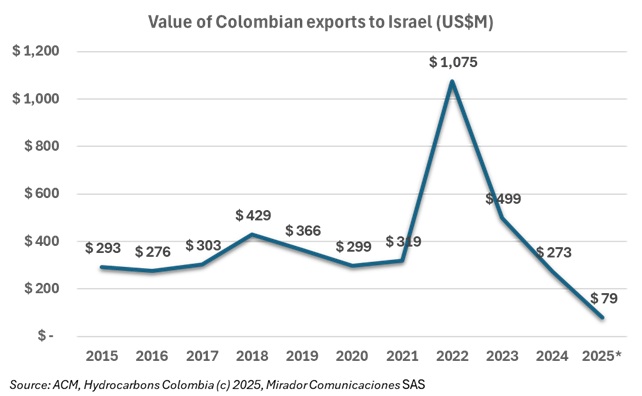Colombia’s economy grew 2.1% in the second quarter of 2025, but the mining and oil sectors dragged heavily on overall performance with steep declines.
Martha Villarreal Pava, President of the Board of Directors at the Colombian Association of Petroleum Engineers (Acipet), called for a pragmatic approach to the nation’s energy debate, stressing that “without hydrocarbons, there is no possible energy transition.”
Ecopetrol (NYSE: EC) has once again contradicted President Gustavo Petro’s claims that the government’s massive fuel subsidy bill is responsible for Colombia’s fiscal deficit.
In an increasingly uncertain global energy landscape, South America is emerging as the hottest frontier for oil exploration and production.
Despite ongoing local and global uncertainty, Colombia’s economy continues to show encouraging signs of recovery.

During the meeting of energy ministers of the Community of Latin American and Caribbean States (CELAC), Colombian President Gustavo Petro urged the Wayúu communities to halt attempts by Glencore, Cerrejón, and Drummond to export coal to Israel.
During his visit to Monómeros’ headquarters to review the company’s financial statements, infrastructure, and the working conditions of its 522 direct employees and nearly 1,200 indirect workers, Colombia’s Minister of Mines and Energy (MinEnergia), Edwin Palma, praised the company’s resilience and strong performance despite the significant challenges it faces.
Colombia’s traditional export landscape is undergoing a quiet transformation. For the first five months of 2025, remittances from Colombians abroad nearly equaled revenues from oil exports—once the country’s dominant source of foreign currency.
President Gustavo Petro announced that the government had reached an agreement to end the mining strike in Colombia, following a series of negotiations that produced key commitments for the sector.
We called last week’s opinion article in ePower Colombia “One year more” on the last year of Gustavo Petro’s mandate. Apparently only one person opened the article, and that might have been our editor, preparing for this week’s HCC opinion. Maybe we are all just tired of thinking about Colombian politics and the current government.